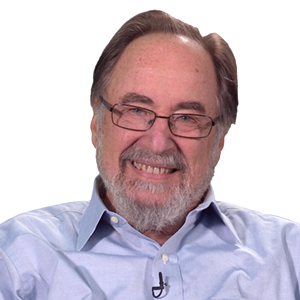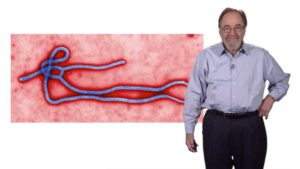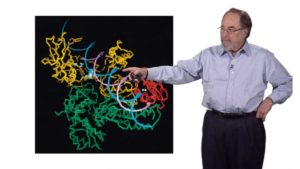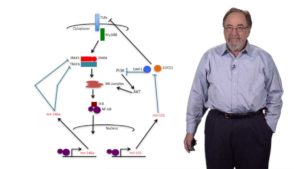After serving as President of the California Institute of Technology for nine years, in 2006 David Baltimore was appointed President Emeritus and the Robert Andrews Millikan Professor of Biology. Born in New York City, he received his B.A. in Chemistry from Swarthmore College in 1960 and a Ph.D. in 1964 from Rockefeller University, where he returned to serve as President from 1990-91 and faculty member until 1994.
For almost 30 years, Baltimore was a faculty member at Massachusetts Institute of Technology. While his early work was on poliovirus, in 1970 he identified the enzyme reverse transcriptase in tumor virus particles, thus providing strong evidence for a process of RNA to DNA conversion, the existence of which had been hypothesized some years earlier. Baltimore and Howard Temin (with Renato Dulbecco, for related research) shared the 1975 Nobel Prize in Physiology or Medicine for their discovery, which provided the key to understanding the life-cycle of HIV. In the following years, he has contributed widely to the understanding of cancer, AIDS and the molecular basis of the immune response.
In addition to receiving the Nobel Prize, Baltimore’s numerous honors include the 1999 National Medal of Science, election to the National Academy of Sciences in 1974, the Royal Society of London, and the French Academy of Sciences. Learn more about Baltimore’s research at his lab website







